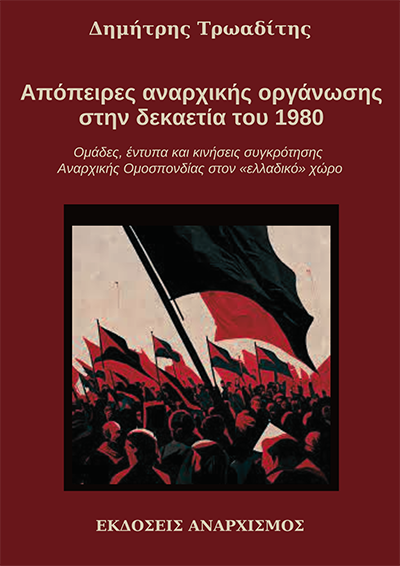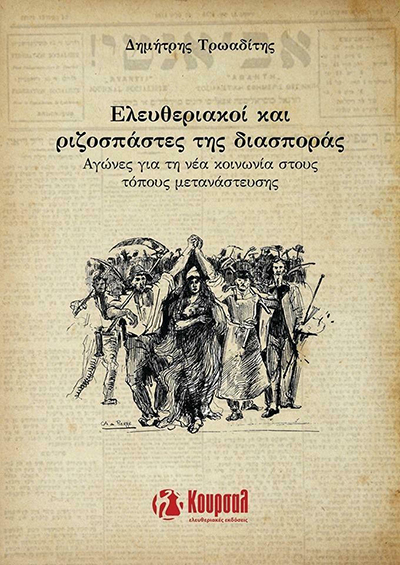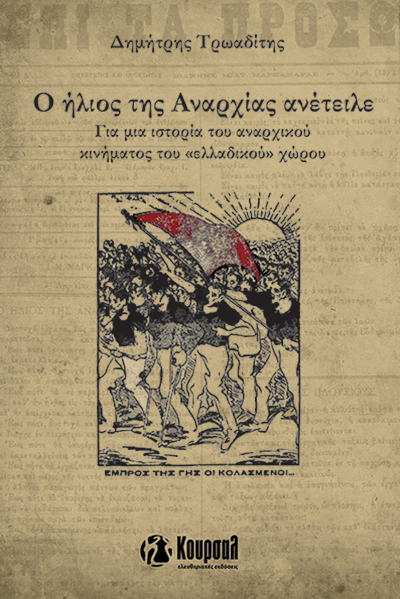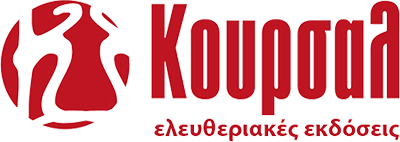- Dimitris Troaditis
- English
In 1893 Socialistiki Adelfotita (Socialist Brotherhood) founded in Patras, which was not a coherent organisation, but a loose grouping of some socialists and progressives, many of whom were friends and followers of the famous Greek socialist of this time Plato Drakoulis. By some historians, Socialist Brotherhood was allegedly a continuation of the Democratic Club in 1870s.
Brotherhood’s president was Vasilis Doudoumis (a lawyer who among other things, wrote some revolutionary poems), secretary was the teacher Charilaos Dimitropoulos, and one of the leaders of the organisation was the architect Aristotle Thales, who came from Alexandria in Egypt.
Apart from Plato Drakoulis’ followers, such as V. Doudoumis (who was a classmate of Drakoulis in High School of Patras), members of the Brotherhood were supporters of the other famous socialist of the time Stavros Kallergis (based in Athens) and some anarchists, such as the well-educated and excellent connoisseur of anarchist ideas and European social movements of his time Giannis Magkanaras, who settled in Patras, probably around the same time, coming from Corinth.
Of those, some were intellectuals, and a small number were tradesmen and laborers. However, as we said earlier the Socialist Brotherhood was not a coherent organisation and the various ideological trends fought constantly among themselves.
The fact that Giannis Magkanaras was connected with the Socialist Brotherhood proved by his reports on the activities of this organisation published in the socialist newspaper “O Metarrythmistis” ("The Reformer") in which he either worked as an editor or cooperated. This newspaper firstly published in 1893 in Athens by G. Dimopoulos when he left the Sosialistikos Syndesmos (Socialist Society) led by Stavros Kallergis.
Also, Giannis Magkanaras seems he cooperated with the newspaper “Sosialistikos Syllogos” (“Socialist Association") firstly published in 1893 in Athens as an organ of Kentrikos Sosialistikos Syllogos (Central Socialist Society) which was the product of one of the splits in this organisation. In the same paper in the Central Socialist Society participated anarchists such as Evangelos Markantonatos or anarchism influenced activists such as Alexandros Matiatos.
Socialist Brotherhood’s prime and foremost interest was the union movement and by Brotherhood‘s initiative the first labor unions founded in Patras, as mentioned by anarchist Dimitris Karampilias in his memoirs. Several members of the Brotherhood were, simultaneously, members of these unions.
The organisation, other than their mutual nature, aimed to educate local people and workers to the ideals of socialism and because there was not a proper meeting space for the monthly gatherings and lectures they used the room of an elementary school in St. George Square, for which Dimitris Karampilias wrote in an article of his published as a memoir in the newspaper “E Simerini” ("Today"), Patras, 30 April 1950. The first unions, the newspaper “To Fos” ("The Light").
As mentioned before, at the same time the first labor unions founded in the city of Patras and the surrounding region. According leading marxist historian Gianis Kordatos, the first union was this of shoe makers founded in 1894. According T. Constantine the first union founded in Patras in 1893 and...
- Dimitris Troaditis
- English
The first trade union in Egypt under the name Brotherhood of Workers founded in 1872 by Greek workers, most of which came from the island of Corfu.
The first anarchist publication in Egypt appeared in Alexandria, probably in 1877 with the title «Il Lavoratore» («The Worker") in Italian language.
In September 1878, Errico Malatesta leaves Naples to avoid internment. He goes to Alexandria, Egypt where there is a thriving community of Italian workers. Meanwhile, after King Umberto I assumes the throne of Italy, the republican Passamante unsuccessfully attempts to assassinate the new king. There is widespread repression throughout Italy, in...
- Δημήτριος Παπαρρηγόπουλος
- Ελλαδικά Κοινωνικά Κινήματα
ΑΝΕΚΔΟΤΟΣ ΕΠΙΣΤΟΛΗ ΤΟΥ ΜΑΚΑΡΙΤΟΥ Δ. ΠΑΠΑΡΡΗΓΟΠΟΥΛΟΥ (1)
Φίλε Κύριε,
Αθήναιος ο δειπνοσοφιστής αναφέρει, ότι, ερωτηθείσα μία εταίρα της αρχαιότητος, τι φρονεί περί του έρωτος; Φρονώ, απήντησεν, ότι έρως είναι η τε ηδυπάθεια και η ηθική ευδαιμονία, την οποία αισθάνεται το εν των γενών, όταν κρατή το έτερον εις τας αγκάλας αυτού. Η απάντησις αύτη ήρμοζε εις τα άσεμνα μιάς εταίρας χείλη, διότι, δικαιολογούσα την διαγωγήν αυτής, αναπλάττει τον έρωτα ως θεόν του αποτελέσματος και ουχί του αιτίου.
Αλλά συ, φίλε μου, συ ο ερευνητής της ανθρωπίνης καρδίας, ο αισθηματώδης, συ να παραδέχεσαι ότι είναι δυνατοί δύω συγχρόνως έρωτες, δεν είναι θλιβερόν;
Έρως δεν...
- Δημήτριος Παπαρρηγόπουλος: Μένανδρος
- Δημήτριος Παπαρρηγόπουλος - Ποιητής, θεατρικός συγγραφέας, μελετητής και εξεγερμένος
- Πάυλος Αργυριάδης και Παρισινή Κομμούνα
- Σύντομη ιστορία του αναρχοσυνδικαλισμού
- Γιώργος Μπουρλής: Ο κοινωνικός αγωνιστής Μαρίνος Αντύπας
- Γ. Βρισιμιτζάκης: Πάνω σε μερικά Γαλλικά βιβλία
- "Επί τα Πρόσω": Αριθ. (15) 2 / 7 Απριλίου 104 (1896)
Στο κτήριο της Ελληνικής κοινότητας της Μελβούρνης στις 18/07/2019
Με τον Ελευθεριακό στο Αυτοδιαχειριζόμενο Στέκι Πέρασμα, 22/01/2018




